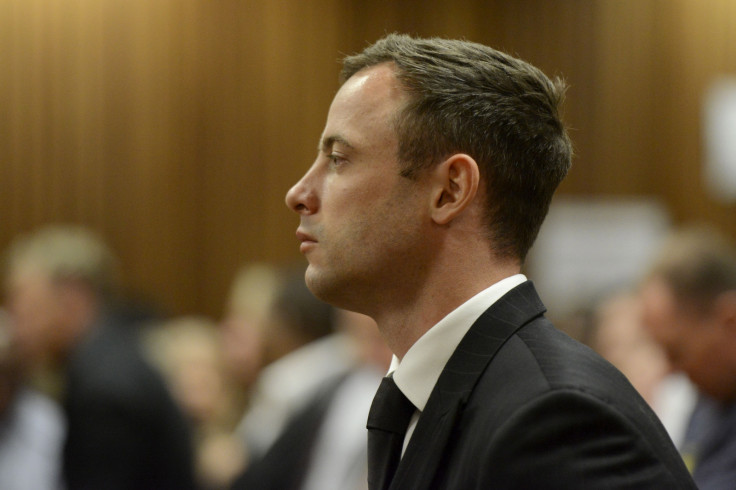Oscar Pistorius Jailed: What Does It Mean for Sport?

Oscar Pistorius has been given a five-year prison sentence for shooting dead girlfriend Reeva Steenkamp on 14 February 2013.
The seven-and-a-half month trial of the South African athlete has divided opinion in his homeland, and that debate is likely to be heightened as the 27 year old is likely to only serve a sixth of his sentence and be released on house arrest after 10 months.
Though a subsequent appeal is possible, under the current sentence Pistorius will be free to return to normal life one way or another in 2019, aged 32. After rising to prominence as the first-ever amputee runner to compete in the Olympic Games, Pistorius's athletics career therefore hangs in the balance.
What does the ruling handed down by judge Thokozile Masipa mean for Pistorius' career? Does the diluted punishment of house arrest affect his ability to train? What impact does the trial have on Paralympic sport? IBTimes UK looks at the main questions regarding what remains of Pistorius's sporting career.
Can Pistorius Return to Sporting Competition?
Baring an appeal, regardless of whether Pistorius serves his five-year sentence in prison or under house arrest, the International Paralympic Committee (IPC) says the South African-born runner will be barred from participating in their competitions until his full punishment is served in 2019.
The six-time Paralympic champion is therefore ineligible for the Rio 2016 Olympic Games and the World Paralympic Athletics championships in London in 2017.
Though Pistorius's unwillingness to return to training since the shooting in February 2013 points towards an anticlimactic close to his career, could the end of his sentence reinvigorate the athlete? The International Association of Athletics Federations and International Olympic Committee have meanwhile refused to comment on Pistorius's future.
Will Pistorius Retire from Elite Sport?
With the conditions of the house arrest yet to be outlined, the restrictions upon Pistorius are still uncertain but he must not become a burden on the state or the taxpayer, and therefore must find a job.
Given that his primary source of income has come from being a professional athlete, Pistorius' defence team will be under pressure to lobby for provisions for him to train ahead of a competitive return to the track – should he wish to run again.
However, given that Pistorius has shown little desire to train throughout the trial, has lost all of his endorsements and had already targeted retirement in 2017, two years prior to when he is permitted to compete again, the more likely scenario is a confirmation of his retirement. Furthermore, his release will mark 85 months since his last competitive race.
How Can Paralympic Sport Recover?
The days of Paralympic sport living in the shadows are over. London 2012 effectively saw disability sport enter the mainstream media for the first time. Around 4,200 athletes from 165 countries helped create the finest and best-watched Paralympics games ever held, ensuring that Pistorius's enormous profile did not dominate the agenda.
While Pistorius's name with forever be etched in sporting history given his campaigning and success in able-bodied events, the emergence of Natalie du Toit, Ellie Symonds, Richard Browne and Alan Oliviera – who beat Pistorius in London – means the sport is in good hands.
IPC president Sir Philip Craven said: "We are not an organisation with one name, we have so many great stars. That started in London and will continue through to Rio 2016 and beyond."
© Copyright IBTimes 2025. All rights reserved.






















